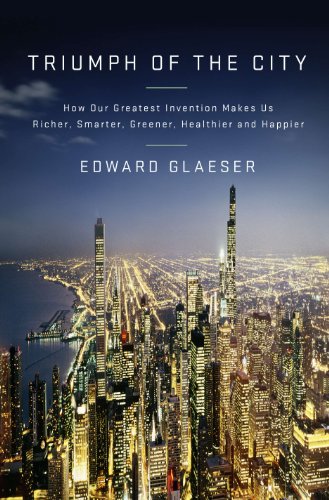10 Best-Selling Urban Sociology Books Millions Love
Discover Urban Sociology Books recommended by Bill Gates, Satya Nadella, and Mark Zuckerberg, featuring proven insights into urban life and policy.

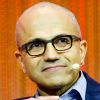

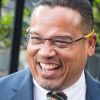
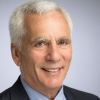
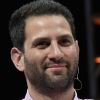
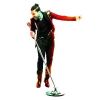
There's something special about books that both critics and crowds love. Urban sociology books that have won wide acclaim reveal the complex social, economic, and political forces shaping modern cities — a subject growing ever more urgent as urban populations swell and inequality deepens.
Prominent figures like Bill Gates, co-founder of Microsoft, and Satya Nadella, its CEO, have championed works like Evicted and The Color of Law for their illuminating insights into poverty and segregation. Meanwhile, Mark Zuckerberg appreciates Gang Leader for a Day for its raw, ethnographic look at urban social networks. Their endorsements highlight how these books resonate beyond academia into real-world leadership and policy.
While these popular books provide proven frameworks, readers seeking content tailored to their specific Urban Sociology needs might consider creating a personalized Urban Sociology book that combines these validated approaches. This lets you focus on particular urban issues or perspectives that matter most to your interests or career.
Recommended by Keith Ellison
Minnesota Attorney General, advocates for dignity
“Just listened to the audio version of one of my favorite books, The Color of Law: A Forgotten History of How Our Government Segregated America by Richard Rothstein. Highly recommend.” (from X)
by Richard Rothstein··You?
by Richard Rothstein··You?
What if everything you knew about racial segregation was wrong? Richard Rothstein, a respected expert on housing policy, shows how government laws and policies—not just personal prejudice or economic factors—actively engineered segregation across American cities. You’ll learn about the explicit zoning laws, discriminatory public housing practices, and federal subsidies that shaped neighborhoods. Chapters detail how policies from the 1920s onward systematically excluded Black families from opportunity-rich areas. This book suits anyone seeking a deeper understanding of urban inequality and the roots of segregation that persist today.
Recommended by William Whyte
Author of City: Rediscovering the Center
“One of the most remarkable books ever written about the city . . . a primary work. The research apparatus is not pretentious—it is the eye and the heart—but it has given us a magnificent study of what gives life and spirit to the city.” (from Amazon)
Jane Jacobs's decades of activism and urban observation led her to challenge the prevailing city planning norms in this influential work. She dissects how rigid planning and large-scale redevelopment often undermine the vitality of neighborhoods, arguing instead for diversity, mixed uses, and human-scale city life. You’ll uncover detailed critiques of then-dominant planning theories and discover concepts like "eyes on the street" and the importance of sidewalks and local economies. This book suits anyone interested in urban development, community activism, or how cities function on a human level, though planners expecting technical blueprints might find it more conceptual than prescriptive.
by TailoredRead AI·
by TailoredRead AI·
This tailored book explores urban sociology with a focus on battle-tested methods for addressing real-world city challenges. It examines urban social dynamics, community formation, economic disparities, and policy impacts through a personalized lens that matches your background and interests. By integrating validated insights from millions of readers, this book offers a unique opportunity to delve into the complexities of urban environments while centering on the issues most relevant to you. The approach reveals how these urban phenomena interact and shape city life, providing a clear understanding of social structures, economic forces, and cultural trends. This personalized exploration empowers you to engage deeply with urban sociology's core topics and challenges.
Recommended by Alex Press
Journalist and columnist at Jacobin and others
“@NickShepley I’m a huge Mike Davis fan! though I do think it’s hard to beat City of Quartz for best LA book” (from X)
by Mike Davis··You?
by Mike Davis··You?
Mike Davis challenges the conventional wisdom that Los Angeles is simply a sunny, sprawling metropolis by excavating its darker, often overlooked social history. Drawing from decades of research and urban observation, he paints a vivid picture of LA as a city of sharp contrasts—where affluent enclaves coexist uneasily with neglected neighborhoods, and power dynamics shape everyday life. You’ll gain insights into urban segregation, economic disparity, and the political forces molding the city’s future, especially in chapters detailing private security forces and environmental changes. This book suits anyone seeking a nuanced understanding of urban inequality and the complex social fabric of Los Angeles.
Recommended by Bill Gates
Co-Founder & Former CEO of Microsoft
“This book gave me a better sense of what it is like to be very poor in this country than anything else I have read. . . . It is beautifully written, thought-provoking, and unforgettable.” (from Amazon)
by Matthew Desmond··You?
by Matthew Desmond··You?
When Matthew Desmond decided to immerse himself in Milwaukee's toughest neighborhoods, he uncovered the harsh realities of eviction and its devastating ripple effects on families. This book offers a detailed examination of how housing instability traps the urban poor in cycles of poverty, blending vivid storytelling with sociological analysis. You’ll gain insight into the economic mechanics of eviction, the legal frameworks involved, and the human stories behind the statistics, especially through the lives of eight families Desmond follows closely. If you’re interested in social justice, urban policy, or want a grounded understanding of poverty’s complexity, this book provides a sobering, unfiltered perspective.
by David Harvey··You?
by David Harvey··You?
After analyzing various urban environments, David Harvey found that the intersections of capitalism, culture, and urbanization define the experience of western cities. His essays delve into how economic pressures shape physical spaces and social life, especially in post-industrial contexts. You’ll explore concepts like flexible accumulation and the spectacle of the city, gaining a nuanced understanding of urban processes beyond surface-level observation. This book suits those studying urban geography, sociology, or politics who want to grasp the deeper forces behind city life rather than just its outward appearance.
by TailoredRead AI·
by TailoredRead AI·
This tailored book explores fast, actionable approaches to urban sociology designed to match your unique background and goals. It combines widely valued knowledge with your personal interests to reveal how urban environments function and transform. The book examines key urban challenges such as social networks, economic disparities, community dynamics, and policy impacts, while focusing on prompt, practical methods you can apply. By tailoring the content specifically to you, it fosters a deeper understanding of urban systems and how to influence them effectively. This personalized guide ensures you engage with content that matters most to your aspirations and learning preferences in urban sociology.
Recommended by Andrew M. Mwenda
Prominent political commentator and journalist
“@murungiasinani Please read a truly great book, The Triumph of the City, by Edward Glazer. He presents research that found that narrowing roads reduces traffic jams while enlarging them increases jams. Reality, my grandson, is often different from our common sense assumptions!” (from X)
by Edward L. Glaeser··You?
What if everything you knew about cities was wrong? Edward L. Glaeser, a Harvard economist deeply versed in urban economics and policy, challenges common perceptions by showing cities as hubs of health, wealth, and innovation rather than problems to avoid. You’ll explore how urban density contributes to longer life spans, lower energy use, and economic opportunity, illustrated through examples like New York’s longevity and Silicon Valley’s tech boom. Glaeser also dives into surprising data on urban housing costs and environmental impacts, helping you grasp the complex forces shaping city life today. This book suits anyone curious about how cities truly function and their role in shaping our future.
by Loïc Wacquant··You?
by Loïc Wacquant··You?
Drawing from his extensive work as a professor and researcher in both American and European urban contexts, Loïc Wacquant explores the nuanced realities of urban marginality beyond common stereotypes. You learn how policies of racial separation and economic withdrawal shape distinct forms of exclusion in the US and France, supported by detailed fieldwork and historical data. The book challenges the notion of a uniform underclass by contrasting Chicago's black ghetto with Paris’s multiethnic, economically fragmented districts. If you're interested in understanding how state policies, labor market changes, and social fragmentation intersect to produce urban poverty, this book offers a rigorous, comparative perspective that is especially useful for sociologists, urban planners, and policy analysts.
by Michael Bull·You?
by Michael Bull·You?
Michael Bull's decades of research in media and urban culture led to this exploration of how sound shapes city life. Drawing on the example of the Apple iPod, he reveals how a sound-based device mediates urban experience, transforming everyday social interactions and public spaces. You’ll learn how mobile audio technologies act as personal guides through the city, reshaping perceptions and behaviors in ways visual-focused studies often overlook. This book suits anyone curious about the intersection of technology, music, and urban sociology, especially those interested in how digital devices influence social environments.
Recommended by Mark Zuckerberg
Co-Founder & CEO of Facebook
by Sudhir Venkatesh··You?
by Sudhir Venkatesh··You?
Sudhir Venkatesh's journey began with a simple academic assignment that spiraled into a decade-long immersion in one of Chicago's most infamous gangs. You gain a raw, unfiltered glimpse into the intricate social dynamics and survival strategies within urban poverty, far beyond typical sociological surveys. The book details the complex relationships Venkatesh observed, from gang leadership to community interactions, revealing the blurred lines between crime, loyalty, and resilience. If you're curious about the human stories behind urban crime statistics or want to understand the social fabric of marginalized communities, this book offers firsthand insights that challenge stereotypes and academic conventions.
by William G. Flanagan··You?
by William G. Flanagan··You?
While working as a sociology professor, William G. Flanagan noticed the complex interplay between urban environments and social dynamics, which propelled him to write this detailed examination of city life. You gain a grounded understanding of how ecological and political-economic forces shape urban culture, community, and inequality, with concrete examples such as minority-majority relations and the spatial distribution of resources. The book doesn’t just focus on theory but also explores the historical development of cities and contemporary issues like cyberspace and globalization’s impact on urban areas. If you want to grasp urban sociology through a balanced lens that includes cultural, social, and political perspectives, this book offers a solid foundation without getting lost in jargon.
Popular Urban Sociology Methods, Personalized ✨
Get proven urban sociology insights tailored to your unique interests and goals.
Trusted by thousands of urban sociology enthusiasts worldwide
Conclusion
The 10 books showcased here collectively explore enduring themes like systemic segregation, economic inequality, community dynamics, and the evolving urban experience. They offer frameworks that have stood the test of time and found broad validation among readers and experts alike.
If you prefer proven methods grounded in policy and history, start with The Color of Law and Evicted. For validated approaches blending theory and lived experience, The Death and Life of Great American Cities and Gang Leader for a Day provide compelling narratives. Combining these can deepen your understanding of urban challenges from multiple angles.
Alternatively, you can create a personalized Urban Sociology book to combine proven methods with your unique needs. These widely-adopted approaches have helped many readers succeed in navigating and shaping complex urban realities.
Frequently Asked Questions
I'm overwhelmed by choice – which book should I start with?
Start with The Color of Law for a foundational understanding of urban segregation or Evicted for insights into housing instability. Both books offer accessible introductions with real-world impact stories that ground the broader field of urban sociology.
Are these books too advanced for someone new to Urban Sociology?
Not at all. Many, like The Death and Life of Great American Cities, are written for a broad audience. They balance theory with storytelling, making complex concepts approachable for newcomers.
What's the best order to read these books?
Begin with historical and policy-focused works like The Color of Law, then explore community and economic perspectives in Triumph of the City and Urban Outcasts. Finish with ethnographic accounts like Gang Leader for a Day for a ground-level view.
Should I start with the newest book or a classic?
A mix works best. Classics like The Death and Life of Great American Cities provide timeless insights, while newer books like Evicted address pressing contemporary issues.
Do these books assume I already have experience in Urban Sociology?
Most are designed for readers without prior expertise, offering clear explanations and engaging narratives that build understanding from the ground up.
How can I get Urban Sociology insights tailored to my specific interests?
While these expert books provide valuable foundations, personalized Urban Sociology books can focus on your unique goals and contexts. They combine proven methods with your specific needs—explore personalized books here.
📚 Love this book list?
Help fellow book lovers discover great books, share this curated list with others!
Related Articles You May Like
Explore more curated book recommendations





